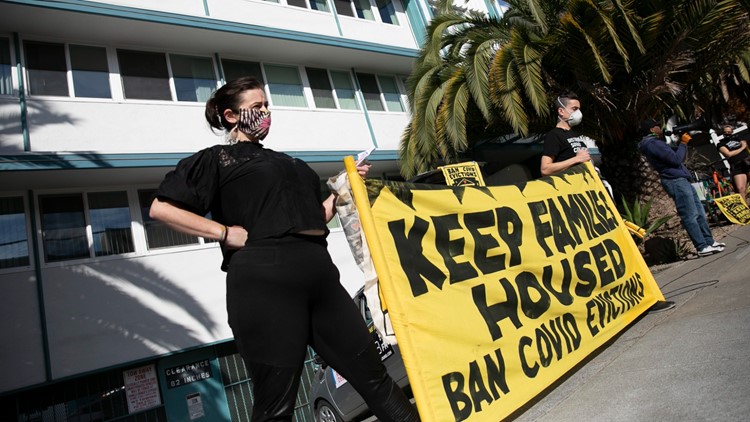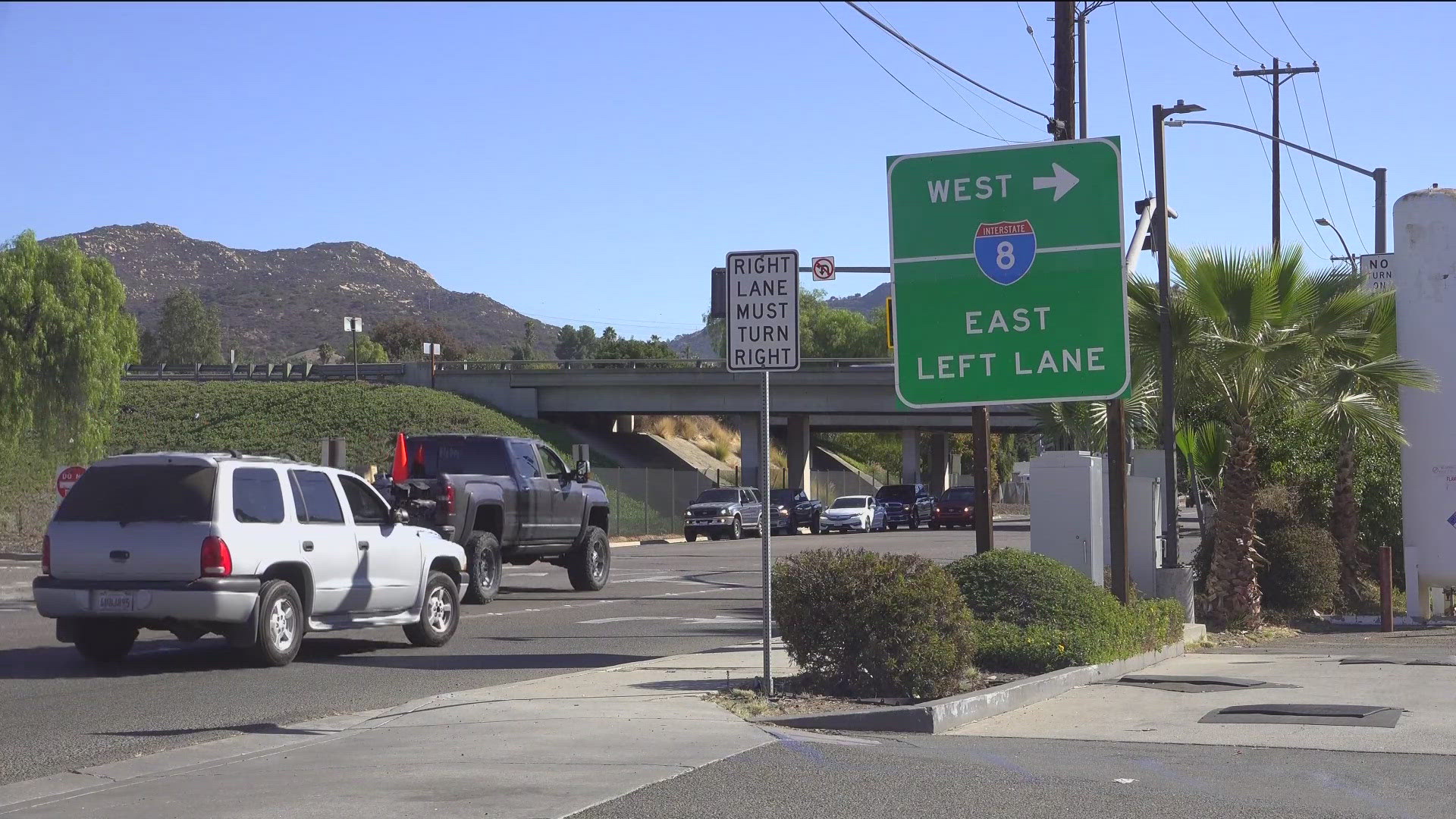CALIFORNIA, USA — Negotiations surrounding an extension of the state’s eviction moratorium are approaching the do-or-die point with little more than a week left to find a solution for renters and landlords alike.
Gov. Gavin Newsom and state lawmakers are trying to reach an agreement by Jan. 31, when the current eviction ban expires. Without an extension, throngs of vulnerable renters could be thrown out of their homes during a pandemic and likely further exacerbate the state’s homeless crisis.
“Californians are staring down a very dark eviction cliff if we don’t extend the eviction moratorium,” said Assemblyman David Chiu, who proposed legislation to extend the moratorium until the end of the year.
At stake are between 240,000 and 700,000 California households at risk of eviction for failing to pay rent. The lower estimate comes from a recent collaboration between the Legislative Analyst’s Office and the Federal Reserve Bank of Philadelphia, while the higher estimate came from research earlier in the pandemic from the University of California, Berkeley.
Those involved in negotiations expressed optimism that a deal will get done, and said it’s likely a bit of brinksmanship will push the negotiations to the last day. Earlier this month, Newsom pledged to get a deal done, calling it “foundational.”
So far, tenant groups feel sidelined by the negotiations, landlord groups worry about their clients being left holding the bill and legislators have different ideas over how long to push the moratorium deadline, according to multiple people involved in or briefed on the negotiations.
The most agreed-upon date for an end to the moratorium is June 30, although landlord advocacy groups are pushing for lifting the moratorium on April 1 for those who have not paid any rent during the pandemic. The governor has not publicly committed to the length of an extension.
Time is running short.
Due to procedural requirements, a bill needs to be in print for 72 hours before lawmakers can cast a vote, meaning lawmakers have even less time to strike a deal. Practically, it means negotiators have this weekend to sort out some of the stickiest elements of the moratorium. For one, the California Apartment Association, which represents landlords, is hoping to secure additional state rental assistance for moderate-income tenants, as well as an earlier end of the eviction moratorium for people who have made no rental payments during the pandemic.
“Our demands are, we continue the consistent statewide [eviction moratorium] standard,” said Debra Carlton, the apartment association’s chief lobbyist. “Don’t create new standards that continue to encourage tenants not pay a portion of the rent. We continue to hear from landlords who have tenants who haven’t lost their jobs but who refuse to pay their rent.”
The association also wants to raise the burden of proof for people who claim to be affected financially by the pandemic. “Right now, you just check a box,” Carlton said.
Carlton said half of the state’s landlords are small mom-and-pop outfits not eligible for federal Paycheck Protection Program loans.
“We’ve got to get money to landlords,” she said. “We worry they are on the brink of foreclosure.”
Chiu’s proposal for a year’s extension has little chance of passage, according to people involved in or briefed on the negotiations, because as urgency legislation, it would require a two-thirds vote. Instead, the deal is far likelier to pass as a budget trailer bill, which would require a simple majority for passage.
Multiple parties that have observed or participated in the negotiations say tenant advocacy groups believe they’ve been sidelined after a collaborative start with legislative leaders and landlords in December.
So what changed? A big pot of money.
Specifically, the $2.6 billion in federal rental relief proposed by Newsom in his budget wishlist issued earlier this month. The federal strings require that money be targeted at low-income tenants and small landlords, specifically those making up to 80% of the area median income (AMI).
The apartment association wants a separate pot of state money to be spent on the next-highest rung of earners, those making between 80% to 150% of the AMI.
“I don’t see the federal government changing their AMI standards,” Carlton said. “That’s where we have to look to the state.”
Another demand from landlords is a bifurcated eviction moratorium: two different dates for two different groups of people.
In the first group would be those who have paid at least 25% of their rent during the pandemic, who would have until the end of June until the moratorium lifts.
The second group would be those who have not paid 25% of their rent and for whom the eviction moratorium would end far earlier, on Apr. 1.
Legislative leaders expressed confidence a deal would get done on or before Jan. 31, but declined to discuss details of the negotiations.
“As negotiations are still ongoing,” said Katie Talbot, spokesperson for Assembly Speaker Anthony Rendon, “there’s nothing preventing these discussions from continuing.”



